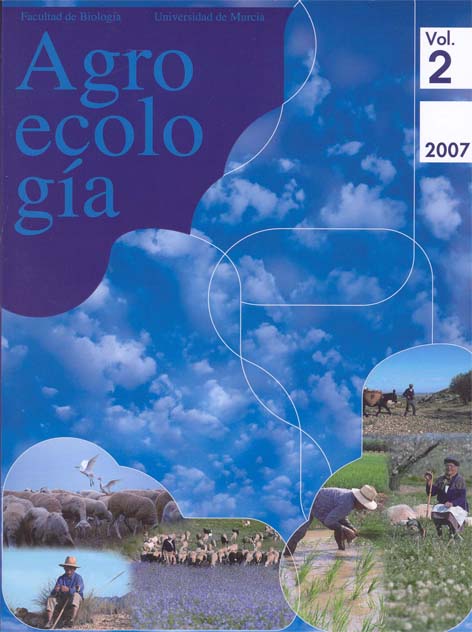TRADITIONAL AGRICULTURE VERSUS ORGANIC AGRICULTURE. THE TERRITORIAL COST OF SUSTAINABILITY
Abstract
The study of traditional agrarian systems can provide useful knowledge for improving the sustainability of present-day agriculture. Nonetheless, with the loss of traditional agroecosystems and the rationale that guides them, as has happened in Europe, an historical research approach can have a decisive role to play in recapturing this knowledge. In this article we study the evolution of a typical Mediterranean agroecosystem during the last 250 years, supporting the claim that high diversity and the internalization of energy fl ows and nutrient cycles found in traditional agriculture, are not only characteristics of the sustainability of such systems, but are based in the need for additional land in production. This claim requires the dedication of land to diverse and complementary uses that leave a footprint on the landscape. Ecological agriculture needs to consider this “territorial cost,” meanwhile trying to minimize it in order to improve its actual degree of sustainability.Downloads
Las obras que se publican en esta revista están sujetas a los siguientes términos:
1. El Servicio de Publicaciones de la Universidad de Murcia (la editorial) conserva los derechos patrimoniales (copyright) de las obras publicadas, y favorece y permite la reutilización de las mismas bajo la licencia de uso indicada en el punto 2.
2. Las obras se publican en la edición electrónica de la revista bajo una licencia Creative Commons Reconocimiento-NoComercial-SinObraDerivada 3.0 España (texto legal). Se pueden copiar, usar, difundir, transmitir y exponer públicamente, siempre que: i) se cite la autoría y la fuente original de su publicación (revista, editorial y URL de la obra); ii) no se usen para fines comerciales; iii) se mencione la existencia y especificaciones de esta licencia de uso.
3. Condiciones de auto-archivo. Se permite y se anima a los autores a difundir electrónicamente las versiones pre-print (versión antes de ser evaluada) y/o post-print (versión evaluada y aceptada para su publicación) de sus obras antes de su publicación, ya que favorece su circulación y difusión más temprana y con ello un posible aumento en su citación y alcance entre la comunidad académica. Color RoMEO: verde.





